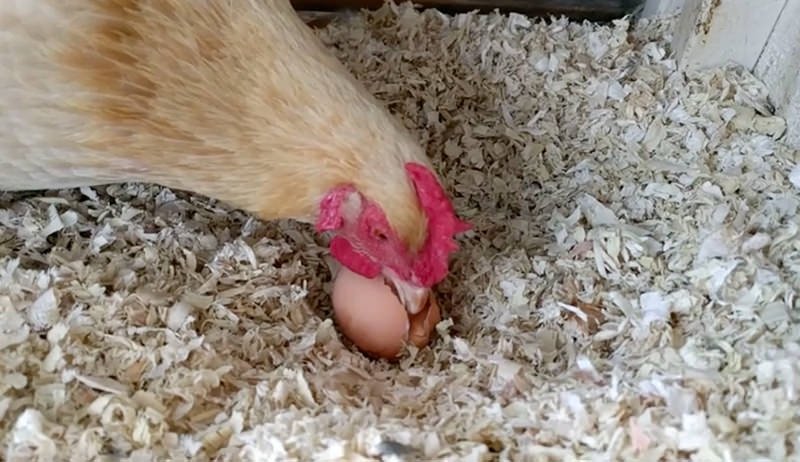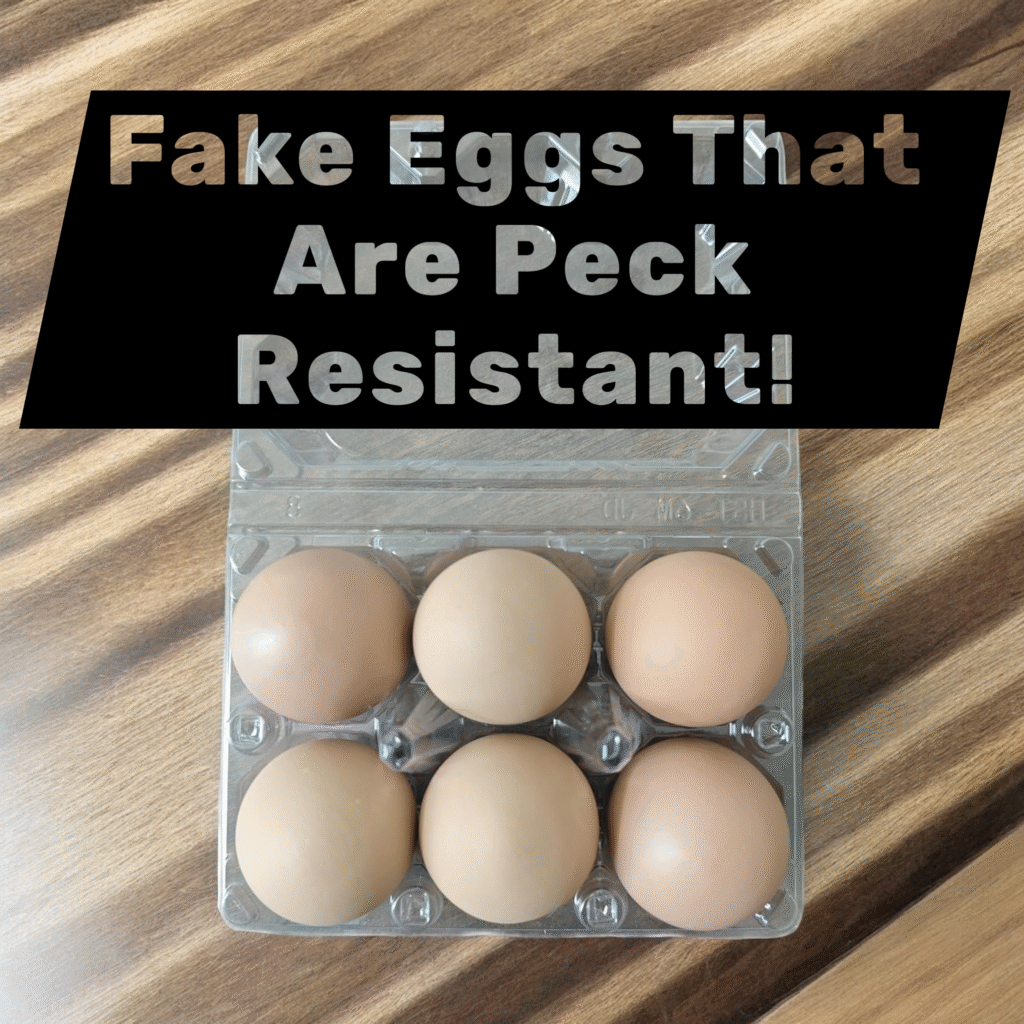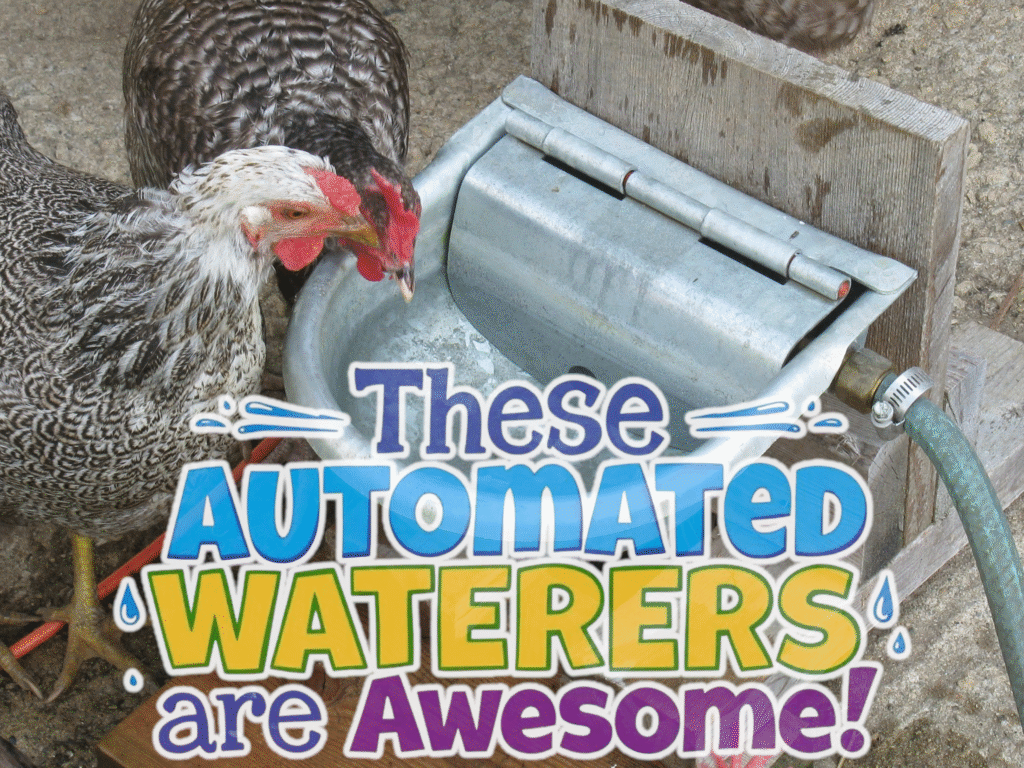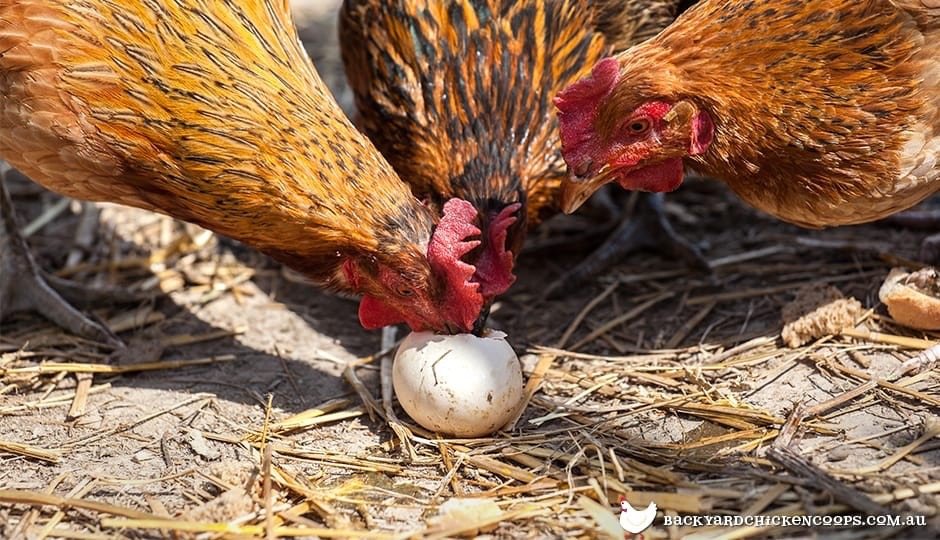
Why Do Chickens Eat Their Own Eggs? (And How I Caught Mine in the Act)
I walked into the coop one morning expecting to collect a few warm, fresh eggs—but all I found were broken shells and sticky mess. One of my hens stood there looking a little too satisfied.
Turns out, chickens eating their own eggs is surprisingly common—and frustrating if you rely on those eggs for your family or to sell. Once one hen starts, it often spreads like a bad habit through the whole flock.
Let me walk you through exactly why this happens and how I finally put a stop to it.

The Real Reasons Chickens Start Eating Their Own Eggs
This behavior doesn’t come out of nowhere. Most times, it’s one of these common causes:
1. Lack of Proper Nutrition
When hens don’t get the right balance of calcium, protein, or other nutrients, their bodies start looking for ways to make up for it—like breaking into their own eggs. Think of it like them hitting the panic button for calcium.
Fix it:
Offer a calcium supplement like crushed oyster shells, which I started doing using this handy oyster shell feeder setup. It helped big time. You can also try a separate calcium boost like this one.
2. Boredom and Stress
Chickens are more like toddlers than we realize. If they’re bored or cramped, they start finding “activities”—like pecking at their own eggs.
Fix it:
Add things like cabbage heads to peck at, hang mirrors, or just let them free range a bit more. A change in routine can make a big difference.
3. Not Enough Nesting Boxes
Too few nesting boxes can lead to fights, broken eggs, and curiosity that quickly turns into bad behavior. Once a hen sees the gooey inside, she might get hooked.
Fix it:
You should have at least one nesting box for every 3-4 hens. I upgraded to a larger 10-compartment nesting box and saw almost immediate improvement.
4. Soft or Thin Eggshells
Sometimes it’s not intentional—eggs with soft or thin shells break easily. And once it’s broken, they don’t waste what’s inside.
Fix it:
Go back to checking their diet and calcium levels. Thin shells usually mean something’s lacking in the feed or the weather is stressing them out (like in extreme heat).

Delay in Collecting Eggs Can Invite Trouble
I used to let the eggs sit for a while before grabbing them, especially on busy mornings. Bad idea. Chickens are curious, and if they peck one open by accident and get a taste, it’s game over.
Fix it:
Collect eggs as early in the day as possible—and make it a consistent habit. This one simple change cut back most of my issues right away.
If your hens still seem confused about where to lay, fake ceramic eggs can be a game-changer. I tested out these ceramic eggs for chickens and was amazed how fast my girls took the hint. It also stopped one of them from trying to peck the real ones.

Overcrowding and Stress = Aggressive Behavior
Tight spaces, especially in coops, make chickens irritable. If one gets cranky or pecks out of frustration, that can spiral into egg eating.
Fix it:
Make sure your chickens have enough space to spread out and de-stress. Rule of thumb? About 4 square feet per chicken inside the coop and 10 square feet outside if they’re in a run. Give them dust bathing areas too—happy hens are much less destructive.

Inadequate Clean Drinking Water
This might surprise you, but chickens need constant access to clean, fresh water—especially when laying. If they can’t get enough fluids, their behavior can change, including egg destruction.
Fix it:
In winter especially, make sure water isn’t freezing. I use this heated water bowl even though it’s marketed for dogs—it’s been perfect for my flock and prevents water from icing over.

The Role of Lighting in Egg-Eating Behavior
Chickens require a balanced light cycle to regulate their laying routine. If your hens aren’t getting enough light — especially during winter — it can throw off their biological rhythm, reducing laying and possibly leading to stress. Stress in turn can be a trigger for bad habits, including egg eating.
Solutions:
- Provide at least 14–16 hours of light each day with the help of a timed coop-safe bulb.
- Make sure lighting is consistent and doesn’t flicker, as inconsistent lighting can confuse your flock.
- Avoid overly bright lights that may make chickens anxious or aggressive.

Do Certain Breeds Eat Eggs More Than Others?
Interestingly, some chicken keepers report that particular breeds seem more prone to this behavior. While there’s no conclusive science backing this yet, anecdotal experience suggests that more curious or assertive breeds like Rhode Island Reds and ISA Browns may be more likely to start pecking eggs — especially in crowded or understimulated environments.
It’s worth noting, though, that any breed can start this habit under the right (or wrong) conditions. It’s more about the environment and chicken management than breed alone.

How to Spot the Culprit in an Egg-Eating Flock
If you’re losing eggs and suspect foul play, catching the sneaky hen in the act can be tricky. Here’s how to narrow it down:
Telltale Signs:
- Sticky egg yolk on a hen’s beak or feathers.
- Broken shells in the nesting boxes without a trace of a whole egg.
- A decrease in egg count without an obvious drop in laying behavior.
- Spending extra time loitering in nesting boxes (they’re not laying — they’re snacking).
You might consider placing a coop cam or just hanging back at a distance after hens lay in the morning.

How Long Does It Take to Break the Habit?
Once a chicken starts eating eggs, it can be hard to stop, but not impossible. If you catch it early and take swift action — such as adding ceramic eggs like these ➡️ Fake Ceramic Eggs That Trick Even the Smartest Hen — you can often break the habit in just a few days to a couple of weeks.
Some stubborn hens may require more aggressive changes, like temporary isolation, or — if all else fails — culling from the flock if they begin influencing others.

Does Egg Eating Spread?
Yes, unfortunately. Chickens are incredibly observant. If one hen starts cracking and eating eggs, it can quickly become a learned behavior that others mimic.
That’s why it’s essential to address the issue immediately — remove any broken eggs, adjust the environment, and consider giving them a high-protein treat alternative like this mix of beetles and mealworms to satisfy their craving.

So….. Why Do Chickens Eat Their Own Eggs? It’s Fixable!
If you’re still wondering why do chickens eat their own eggs, the truth is — it usually boils down to something missing in their routine. Whether it’s a lack of calcium, boredom, overcrowding, or curiosity gone too far, there’s almost always a root cause. And the good news? You can fix it.
From using fake ceramic eggs that trick them into quitting the habit 👉 Check out the ones I use — to improving their diet and nest space, small changes can make a big difference.
Still dealing with messy boxes? You’ll love this one too 👉 Stop the Nest Box Poop Problem
And if broken shells are part of the issue, don’t forget to give your girls the calcium boost they need 👉 Oyster Shells Made a Difference in Just One Week
As an Amazon Associate we earn from qualifying purchases through some links in our articles.


